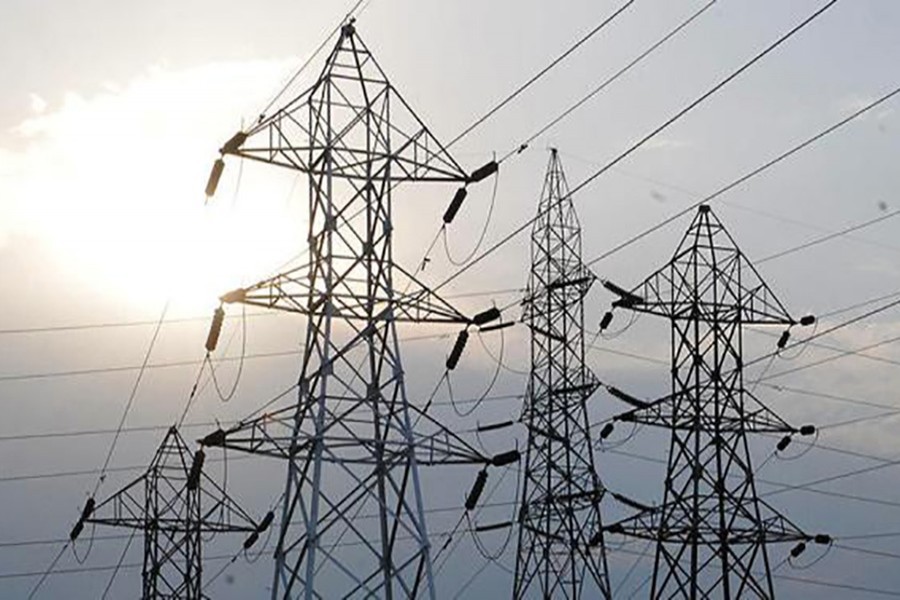Growing overcapacity of Bangladesh's power sector will increase its financial loss following a significant fall in electricity demand amid the prevailing Covid-19 pandemic, a new study has revealed.
"Bangladesh's plan for significant coal- and LNG-fired power plant additions will lock the nation into substantial overcapacity, with major financial implications," it opined.
Australia's Sydney-based Institute for Energy Economics and Financial Analysis (IEEFA) released the study on Monday.
It further said: "The Covid-19 outbreak is currently lowering power demand significantly, increasing financial stress on the Bangladesh Power Development Board (BPDB) by reducing revenue, whilst capacity payments to idle plants have to be maintained."
The pandemic is also delaying coal power projects in Bangladesh under the China-backed Belt and Road Initiative (BRI).
"The COVID-19 induced delay to coal power projects gives Bangladesh an opportunity to reset energy development policy as well as to redirect resources to support economic fundamentals and energy price stability to enable the realisation of Vision 2041."
Bangladesh already has excess power generation with only 43 per cent capacity utilisation in last fiscal year (FY) 2018-19, the study mentioned.
This pre-COVID-19 low usage resulted in Tk 90 billion (US$ 1.1 billion) capacity payments to power plants to sit idle, necessitating the government subsidy and electricity price hike for consumers, it found.
"Based on our own forecast of power demand growth, which takes the economic impact of COVID-19 into account, we calculate that Bangladesh is on course to have capacity that can generate 58 per cent more power than the nation needs by 2030," Simon Nicholas of IEEFA, lead author of the study report, was quoted as saying.
Overcapacity is the situation in which a nation's power sector cannot sell as much as its plants are designed to produce.
The COVID-19 outbreak's impact will also mean that long-term power demand will be lower than forecast, making overcapacity by 2030 worse, if the current plan for coal- and LNG-based power capacity additions is continued, according to the study.
"A long-term switch from cheap domestic gas towards more expensive imported coal and LNG, combined with the severe, long-term overcapacity Bangladesh is on course for, is likely to see rise in subsidy," Simon Nicholas was also quoted as saying.
The study opined that the power tariffs for consumers can also be expected to increase.
It argued that large fleets of big coal and LNG plants are increasingly less appropriate to meet lower-than-expected demand growth in developing nations.
Egypt recently shelved a China-backed 6.6-GW coal plant proposal due to concerns about overcapacity and a preference for renewable energy.
According to the study co-author, Sara Jane Ahmed, there are important lessons for Bangladesh from the experience of Indonesia, which is suffering for the financial impact of overreliance on coal power.
"PLN - the Indonesian state-owned power utility - has seen its over-commitment to coal power leading to a rapid escalation in the government subsidy, which reached an enormous $ 5.0 billion in 2018," she was quoted as saying.
The study focused on stunning similarities to the BPDB's rapidly escalating financial crisis, resulting from existing overcapacity, while pushing forward with completion of the Payra coal plant.
Half of the plant's capacity will remain idle, forcing the BPDB to make additional payments of Tk 1.60 billion ($ 19 million) per month.
"Bangladesh needs to heed these lessons, if it is not to head down the same road towards power system financial crisis as Indonesia," she added.
According to the study, it is now time for Bangladesh to consider more appropriate, modular renewable energy (without capacity payments) and grid investments to meet lower demand growth, and reducing the overall system cost while improving domestic energy security and resilience.
The study found that the quantity of land, suitable for renewables in Bangladesh, is likely to be more than previously assumed.
However, some tough choices over land use may have to make, if Bangladesh is to avoid entrenching a power system, dominated by expensive, imported coal and LNG with higher power tariffs and subsidy, it added.


